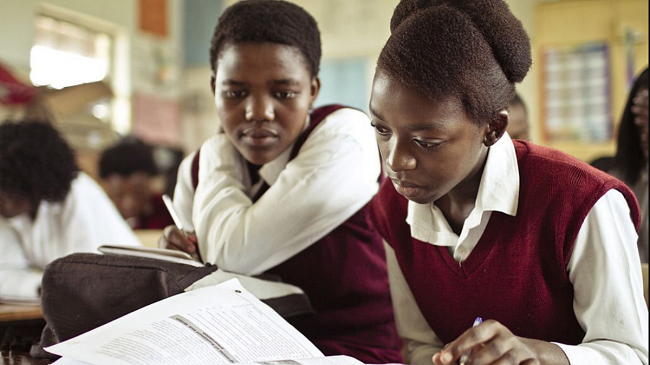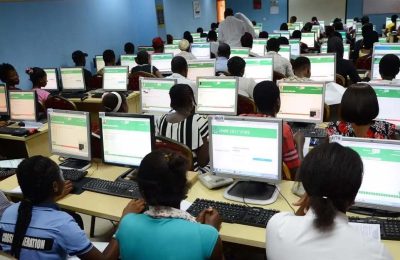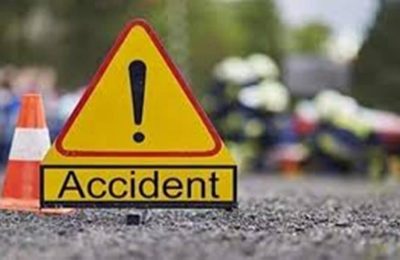IN order to address the rot and decadence in basic education in Nigeria, the United Nations Children’s Fund (UNICEF) has asked the Federal Government to ensure that the country allocates between 45-50 percent of the nation’s education budget to primary and secondary education.
Chief of Education, UNICEF Nigeria, Saadhna Panday-Soobrayan, who made the call in Abuja during a one-day seminar on Foundational Literacy and Numeracy in Nigeria, lamented that the poor investment in basic education in the country had tremendously affected the learning outcomes at that level of education.

Panday-Soobrayan, maintained that more investment is still needed in the primary and secondary school sub-sector, stressing that Nigeria’s basic education is faced with the twin problems of out-of-school and learning crisis.
On the acute shortage of qualified teachers in Nigeria, the UN agency said that a total of 175,000 qualified teachers are needed to fill the capacity gaps in addressing the challenge of inadequate qualified teachers in Nigeria.
UNICEF also noted that the seminar was organised to promote the awareness of the Foundational Literacy and Numeracy (FLN) models and lessons from the implementation of foundational learning programmes in the Northern part of Nigeria.
Some of these programmes which the UN Agency said had improved the learning outcomes in the pilot states, include Reading Numeracy Activity (RANA), Early Grade Reading (EGR), and Teaching at the Right Level (TaRL).
RANA which was piloted in two states has now been extended to nine states reaching about 750,000 learners in the North with support from UNICEF.
Panday-Soobrayan said there was the need to not only sustain these programmes but scale them up as well as replicate them in these parts of the country.
“In the last five years, UNICEF has been testing various interventions to solve the learning crisis in Nigeria,” she said.
While noting that the country has about 10.2 million out-of-school children, Panday-Soobrayan lamented the situation where children that are enrolled in schools are not learning, saying that “a recent report indicated that three out of four children in Nigeria cannot read a simple sentence or solve a simple maths problem.”
She noted that these challenges were exacerbated by the current low public spending on education in Nigeria, disclosing only 1.2 per cent of the country’s Gross Domestic Product (GDP) is being spent on education while the international benchmark is four to six percent of GDP.
According to her, the major challenge was that even the little money that is allocated to the education sector is not being spent well; saying that about 28 percent is being spent on higher education when the children in the primary school schools cannot read, write and count.
She added that the task for the next five years is to scale up the successful interventions across Nigeria.
“We have subjected these pilot programmes to independent assessment, evaluation and they have proven to be effective to improve literacy and numeracy rate.
“We really should aim, in the next five years, to see a massive improvement in literacy and numeracy skills. What we need to achieve this are political will, human and financial resources. “ Panday-Soobrayan said.
The director of Basic Education of the Federal Ministry of Education, Dr Folake Davies, said the Nigerian government has applauded the initiatives and would be willing to domesticate the programmes following the displayed evidence in the Northern part of the country.
According to Dr Davies, the Federal government is currently developing an appropriate policy framework to guide the practitioners, support Foundational literacy and Numeracy practice across the country.
She also revealed that the Federal Government has reviewed the policy on the use of mother tongue for teaching of school children to enable the Government to replicate some of these best practices in all parts of the country since the programmes like RANA are basically taught in local language.
Nigeria’s National Language Policy (1985) as encompassed with the National Policy on Education, specifies that the mother tongue or language of the immediate community shall be the medium of instruction at pre-primary and early primary levels.
“Most of these programmes are done in the language of the immediate environment and to replicate in other parts of the country we also need to have them in language that children understand and the Federal Government is putting in place reviewed national policy on mother tongue for use in primary schools and to this, teachers are being trained curriculum is been reviewed to take care of this language policy.
“When we have this done properly then we will be able to deploy and replicate these approaches we have in northern Nigeria, to have the full benefit of improving learning outcomes at the foundational level and improve numeracy and literacy accuracy and to this end teachers are being trained curriculum is been reviewed to take care of this language policy putting in place reviewed national policy on mother tongue for use in primary schools and to this, teachers are being trained curriculum is been reviewed to take care of this language policy.”







